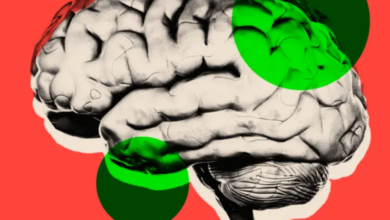Autism Behavior Therapy Unlocking the Potential for Transformation
Table of Contents
Introduction
Autism, a neurodevelopmental disorder, is characterized by a spectrum of challenges in social interaction, communication, and repetitive behaviors. Addressing the behavioral aspects of autism is crucial for individuals to thrive and lead fulfilling lives. In this article, we delve into the world of autism behavior therapy, exploring its significance, benefits, challenges, and future prospects.
Understanding Autism Behavior
Autism behavior varies widely among individuals. Common traits include difficulties in communication, challenges in social interaction, and repetitive behaviors. It’s essential to recognize the unique variations in behavior to tailor effective therapeutic interventions.
Role of Behavior Therapy
Behavior therapy is a structured approach designed to modify and improve behavior. In the context of autism, it focuses on addressing specific challenges, enhancing communication skills, and promoting positive social interactions. The beauty of behavior therapy lies in its adaptability to the individual needs of each person.
Benefits of Autism Behavior Therapy
The positive impact of behavior therapy on individuals with autism is remarkable. Improved communication skills, enhanced social interactions, and a positive influence on daily life are among the many benefits observed. Let’s explore these transformations in detail.
Types of Behavior Therapy Approaches
Several behavior therapy approaches cater to the diverse needs of individuals with autism. Applied Behavior Analysis (ABA), Cognitive Behavioral Therapy (CBT), and Developmental, Individual Differences, Relationship-Based (DIR/Floortime) are some prominent methodologies. Each approach has its strengths, ensuring a personalized therapeutic experience.
The Importance of Early Intervention
Early detection and intervention significantly enhance the effectiveness of behavior therapy. Recognizing signs of autism and initiating therapy early can lead to more favorable outcomes. Early intervention programs play a crucial role in laying the foundation for future development.
Challenges in Implementing Behavior Therapy
Despite its effectiveness, behavior therapy faces challenges such as accessibility and affordability. Stigma and misconceptions surrounding autism create barriers to acceptance and hinder the widespread implementation of therapeutic interventions.
Success Stories
Real-life success stories serve as inspirations for those navigating the challenges of autism. Testimonials from parents and caregivers highlight the transformative power of behavior therapy, instilling hope and encouragement in others.
Tips for Parents and Caregivers
Creating a supportive environment at home is essential for reinforcing the benefits of behavior therapy. Parents and caregivers can play an active role by incorporating therapy techniques into daily routines, fostering a positive and inclusive atmosphere.
Incorporating Technology in Behavior Therapy
Advancements in technology offer innovative solutions in behavior therapy. Digital tools, apps, and virtual therapy sessions provide additional support, making therapy more accessible and engaging for individuals with autism.
Future Trends in Autism Behavior Therapy
The future holds exciting possibilities for autism behavior therapy. Advancements in research and technology, coupled with evolving therapeutic approaches, promise a more nuanced and tailored experience for individuals on the autism spectrum.
Community Support and Advocacy
Building a supportive community is vital for individuals with autism and their families. Support groups and advocacy initiatives contribute to raising awareness, reducing stigma, and fostering inclusivity.
Addressing Misconceptions About Autism Behavior Therapy
Misconceptions surrounding autism and its therapy can hinder progress. This section aims to clarify myths and dispel common misunderstandings, promoting a more informed and accepting society.
Case Studies: Transformative Experiences
Highlighting specific cases showcases the transformative potential of behavior therapy. Personal stories of progress and development underscore the impact of tailored interventions on the lives of individuals with autism.
Conclusion
In conclusion, autism behavior therapy is a powerful tool in unlocking the potential for transformation in individuals on the autism spectrum. By understanding the unique needs of each person, addressing challenges, and fostering a supportive environment, behavior therapy paves the way for a brighter future.






